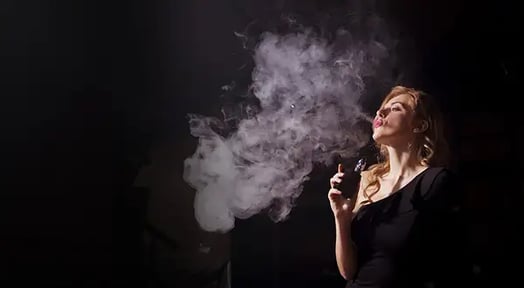The government’s ban on vape pods that taste like dessert went into effect today. But the teens did what teens do — they found a few loopholes.

First: Here’s what the ban actually does
It snuffs out the pre-filled pods that made Juul famous — the fruity, sweet, and minty kind. Juul has already stopped selling flavors like mango and cucumber. But for other brands, the ban could hurt worse than a cigarette burn:
- E-cigs once drove $6.4B in annual sales in the US.
- Vape brands like NJOY (which filed for bankruptcy protection in 2016 and emerged from the ashes last year) and Blu still sell cartridges, and could take a hit.
- As of yesterday, Blu was advertising a LAST-CHANCE FLAVOR BLOWOUT on its site. The promo ended one minute before midnight (when all the flavored pods turned into pumpkins).
If you missed that sweet deal on Melon Time or Citra Zing, you’re not totally out of luck.
That’s because of the loopholes
Here’s what the ban doesn’t do:
- It doesn’t ban all flavors — menthol and tobacco are exempt.
- It doesn’t ban tank-based systems that use flavored liquid. (Those are responsible for $2.6B in annual sales.)
- And here’s the biggie: It doesn’t ban disposable e-cigs.
As The New York Times reported, the disposables are filling the Juul-pod shaped holes in teenage hearts. A brand called Puff Bars peddles flavors like Pink Lemonade, Blue Razz, and, um, OMG. That’s one reason why some public-health advocates think this ban is really just smoke.
